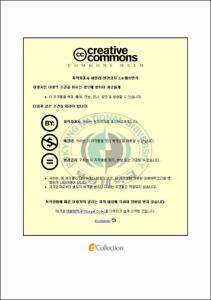초등학생의 휴대폰 사용경향과 자기효능감 및 자기통제력과의 관계
- Abstract
- The purpose of this study is to research the addicted mobile phone use of primary pupil and the relationship of self-efficacy and self-control. Through a comparison of the self-efficacy and the extent of self-control between the group using the mobile phone addictively and the group using non-addictively, this study aims to be a basic research for coming up with ways to reduce the negative situations due to mobile use.
The research object is the primary school pupils, who are in their 5 th and 6 th grade and attending at school in Pusan area. Among those pupils, a mobile phone addiction test was conducted on 558 pupils who use mobile phones all the time. After the test, each of 140 pupils who have an addiction score of over 25% and below 25% are the final analysis object, dividing an addictive use group and non-addictive user groups.
To do this, this study considers as follows. First of all, the addictive use of mobile phone depending on sex was analyzed by Chi-square(x2). Next, T-test was conducted to find out the difference of self-efficacy and self-control between addictive mobile use group and non-addictive user groups.
The research methods for the study are a mobile addiction questionnaire by Jang Hye-Jin(2002) referencing an internet addiction test of Young(1996), an academic self efficacy which measures academic self-efficacy by Kim A-Young(2002), and a self-control measure questionnaire by Kendall and Wilcox(1979), which was reconstructed by Nam Hyun-Mi(1999).
The results from the research are summarized as follows. First, the additive use of mobile phone has no meaningful difference between the sexes. Second, the addictive mobile use group has lower self-efficacy compared with non-addictive mobile use group. Among the subordinate causes of the self-efficacy except self-confidence, the work level preference and self-control efficacy score were significantly lower in the addictive mobile use group. Third, the addictive mobile use group has less self-control than that of the non-addictive group. The self-efficacy and the ability of self-control are closely related to work the performance measure. The low self efficacy and self-control of the pupils using mobile phone addictively is associated to the following behaviors; a distracted school life and lack of concentration in class.
Consequently, the findings of this study have a point to a society of which mobile phone use is widespread. The age group of mobile use is getting lower and the percentage of mobile among pupils is getting higher nowadays. Therefore, desirable and temperate use of mobile phone should be strongly guided at schools and home.
- Issued Date
- 2007
- Awarded Date
- 2007. 8
- Type
- Dissertation
- Keyword
- 휴대폰 사용경향 자기효능감 자기통제력 초등학생 mobile phone
- Publisher
- 부경대학교 교육대학원
- Alternative Author(s)
- Kim, Hae-Kyong
- Affiliation
- 부경대학교 교육대학원
- Department
- 교육대학원 교육심리전공
- Advisor
- 이정화
- Table Of Contents
- Ⅰ. 서론 = 1
1. 연구의 필요성 및 목적 = 1
2. 연구 문제 = 5
3. 용어 정의 = 6
Ⅱ. 이론적 배경 = 8
1. 휴대폰 중독 = 8
2. 자기효능감 = 17
3. 자기통제력 = 22
Ⅲ. 연구 방법 = 25
1. 연구대상 = 25
2. 연구절차 및 도구 = 26
3. 자료 분석 = 30
Ⅳ. 연구결과 = 32
1. 휴대폰의 중독적 사용과 자기효능감 및 자기통제력과의 상관관계 = 32
2. 학년 및 성별에 따른 휴대폰의 중독적 사용 비교 = 33
3. 휴대폰 중독적 사용에 따른 자기효능감의 차이 = 35
4. 휴대폰 중독적 사용에 따른 자기통제력의 차이 = 37
Ⅴ. 논의 및 결론 = 39
1. 논의 = 39
2. 결론 = 41
참고문헌 = 44
부록 = 51
- Degree
- Master
- Files in This Item:
-
-
Download
 초등학생의 휴대폰 사용경향과 자기효능감 및 자기통제력과의 관계.pdf
기타 데이터 / 1.99 MB / Adobe PDF
초등학생의 휴대폰 사용경향과 자기효능감 및 자기통제력과의 관계.pdf
기타 데이터 / 1.99 MB / Adobe PDF
-
Items in Repository are protected by copyright, with all rights reserved, unless otherwise indicated.